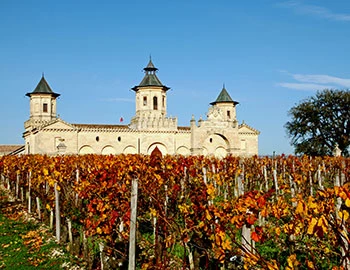Untermosel
Lower Mosel: the finesse of steep slopes
The Lower Mosel comprises the final 100-kilometre section of the river between the village of Pünderich and the site near Koblenz, where the Mosel flows into the Rhine. This sub-region is often known as Terrace Mosel, where steep slope viticulture is reflected in its most impressive form. In the micro-terraces that often sit at dizzying heights over the river, Riesling demonstrates its complete expressive powers.
White wines from Untermosel
Archaeologists believe that the Romans established the first vineyard terraces in the Lower Mosel. Hence, winemaking here is based on a millennia-old culture of terrace construction in which the stones are mainly set dry, as the use of mortar would be too elaborate in these hard-to-reach locations. The use of terraces may have reached its greatest extent around the end of the 19th century. In recent decades, many of the particularly small-scale and labour-intensive terraces have stopped being cultivated. At the same time, understanding of the cultural, historical and architectural value of these dry stone walls has increased. The terraces also contribute significantly to the diverse ecosystem of the Lower Mosel. The loose stones are a perfect habitat for the Apollo butterfly, green lizards and many other species.
Steepest sites in Europe
Even today, many vineyards here are cultivated in the traditional, highly laborious Mosel arch training style, with high plant density. In newer sites, however, vines are also trained with transverse trellis wires. The most important wine villages in this sub-region are Lehmen, Kobern-Gondorf and Winnigen. In addition to the steep slopes that shape the image of the region, there are also consolidated, flatter locations throughout, such as the Domgarten at Winnigen. Calmont, between the towns of Bremm and Ediger-Eller, occupies a unique position in the Lower Mosel region. With its extreme slopes of over 65 degrees, the site is often referred to as the steepest in Europe, or even the entire world.
Riesling from slate
The particular microclimate in the prime south-facing locations along the river, along with a long growing cycle of up to 160 days, yield Rieslings with playful finesse and great minerality. The most important quality factor, however, is the soil, frequently characterized by blue-shimmering Devonian shale, with varying combinations of sand, quartz, clay or lime.








